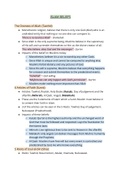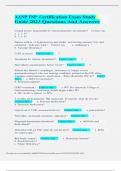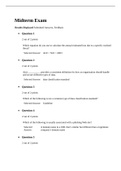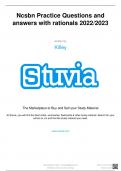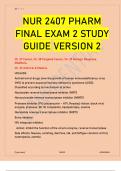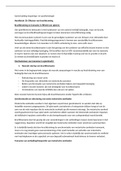Resumen
Summary Top Grade notes and quotes to use for RS AQA - Christianity & Islam
- Grado
- Institución
In-depth structured notes for students preparing for GCSE RS AQA exams for Christianity and Islam. Includes relevant quotes from religious texts for all topics. The perfect revision tool for students aiming to improve exam technique and enhance subject knowledge.
[Mostrar más]
